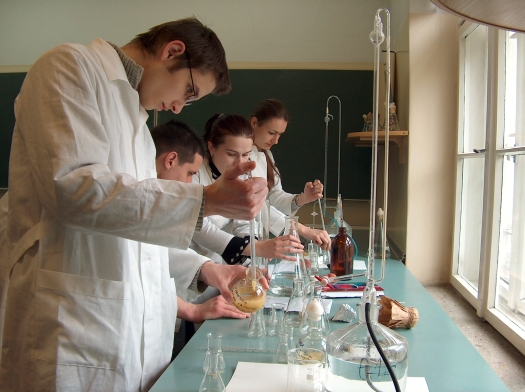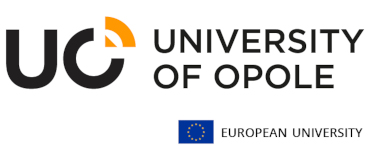Chair of Process Engineering

The Chair
of Process Engineering was founded in 1995 and consists of six departments and
an academic energy centre.
The research equipment used in the Chair of Process Engineering includes:
- Potentiostat type 500
- TGA 2050 thermogravimetric analyser
- OLYMPUS PMG-3 and PME-3 microscopes
- Neophot 2 microscope
- Seven metallographic microscopes
- Multimedia equipment
- Mechanical agitation bioreactor with instrumentation
- SOLAAR 969 absorption nuclear spectrometer made by UNICAM
- Apparatus for measuring electrical properties of loose materials
- Apparatus for measuring electrical properties of semiconductors
Research
- movement analysis of chosen types of apparatuses operating
in stationary and non-stationary conditions
- hydrodynamic modelling in multiphase reactors
- studying corrosion mechanisms
- analysis of air quality in urban areas
- studying electrochemical oxidation of waste resulting from
biofuel production
- rehabilitation and restructuring of soil and small flowing
and stagnant water bodies
- studying anodic oxidation coal carbonates obtained in the
process of biomass dry distillation.
- analysis of growing effectiveness of technological
processes taking into account environmental protection.
Degree programmes offered:
Environmental engineering
The graduate of Environmental Engineering will have general knowledge in the field of mathematical, natural and technical sciences and will be able to use it in their professional career observing the law and ethics. They will also be proficient in economics, business law and will have advanced computer skills.
Renewable energy
The Renewable Energy programme provides the student with a thorough knowledge of the use of renewable energy, including the theoretical basics of power industry with a special focus on renewable energy and practical skills in the area of design and exploitation of renewable energy installations used in sustainable development.
Future Careers:
Graduates of Environmental Engineering are prepared for work in:
- state and local government environmental departments
- state institutions monitoring and protecting environment
- research centres
- funds, foundations
- consulting agencies
- town and country planning units
- institutions specialising in integrated environmental management
- European Union integration organisations
Graduates of Renewable Energy can work in
- renewable energy industry
- computer centres and project agencies
- central and local administration bodies connected with environmental
protection and power industry
- research institutions
Admissions information:
https://rekrutacja.uni.opole.pl/kierunki.php?tryb=katalog
More information:
http://www.kip.uni.opole.pl/show.php?id=24&lang=pl;
http://www.kip.uni.opole.pl/show.php?id=30&lang=pl
Contact:
Chair of
Process Engineering
ul.
Dmowskiego 7-9,
45-365
Opole, Poland
Phone:
+48 77 401 6700,
E-mail: kip@uni.opole.pl

